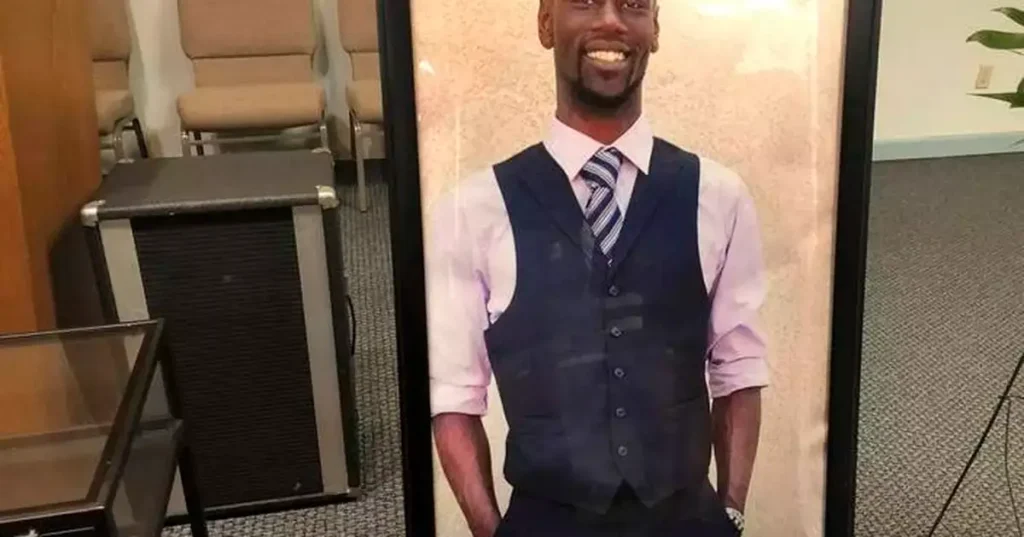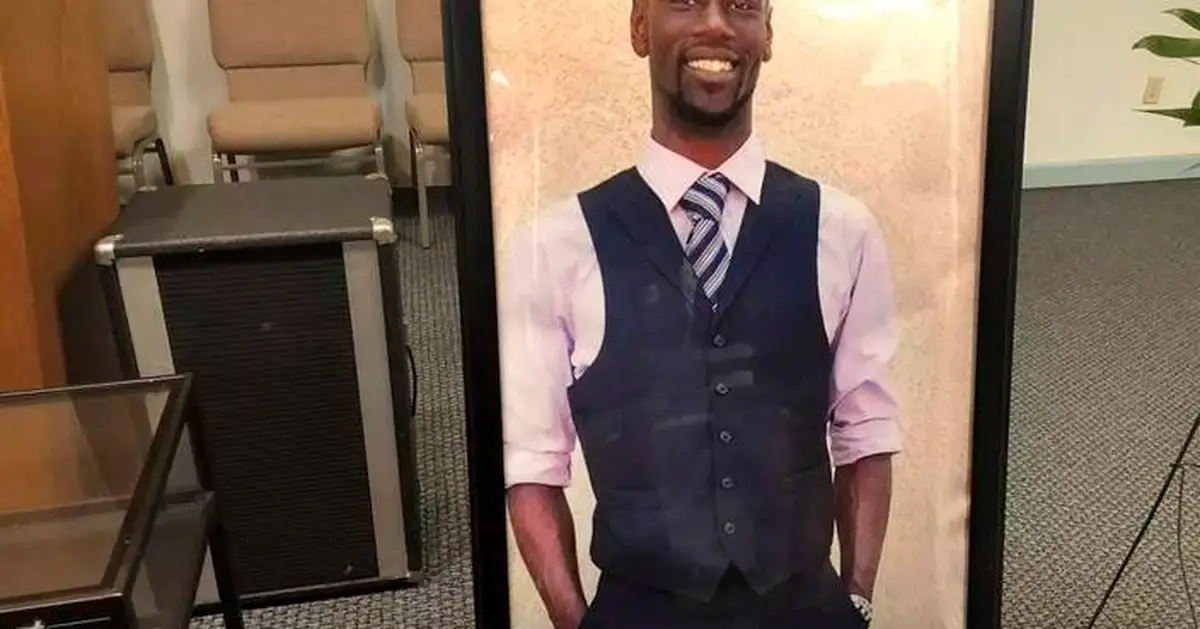Three former Memphis officers have been acquitted of state charges, including second-degree murder, in the fatal beating of Tyre Nichols after he ran away from a traffic stop

MEMPHIS, Tenn. (AP) — On Wednesday, three former Memphis police officers were found not guilty of state charges, including second-degree murder, in the tragic beating death of Tyre Nichols, who died after fleeing a traffic stop. This incident ignited widespread protests and renewed calls for police reform across the United States.
The jury, which seemed to be entirely white, deliberated for about 8 1/2 hours over two days before reaching their verdict for Tadarrius Bean, Demetrius Haley, and Justin Smith, who were acquitted of all charges following a nine-day trial in Memphis. As the verdict was announced, the defendants embraced their attorneys while family members of the former officers wept. One relative exclaimed, “Thank you, Jesus!”
Although the three men were acquitted of these state charges, they still face the possibility of lengthy prison sentences after being convicted of federal charges last year, even though they were also cleared of the most serious allegations at that time.
Nichols, a 29-year-old Black man, ran from a traffic stop after being forcibly pulled from his car, pepper-sprayed, and hit with a Taser. Five Black officers caught up with him and proceeded to punch, kick, and strike Nichols with a police baton, all while he cried out for his mother just steps away from his home. Tragically, Nichols passed away on January 10, 2023, three days after the brutal beating, which sparked intense scrutiny of the police in Memphis, a city with a majority Black population.
Footage from a police pole camera captured the officers standing around, chatting and laughing while Nichols struggled for his life. Civil rights attorney Ben Crump, representing Nichols’ family, expressed his outrage at the verdict. “Today’s verdicts are a devastating miscarriage of justice,” he stated. “The world watched as Tyre Nichols was beaten to death by those sworn to protect and serve.”
Memphis District Attorney Steve Milroy acknowledged the jury’s decision but maintained that the evidence supported every charge brought by the prosecutors. He mentioned that he had a brief conversation with Nichols’ family, saying, “They were devastated. … I think they were outraged, and we can understand why they would be outraged, given the evidence.”
Prosecutors claimed that the officers took out their frustration on Nichols during the incident. Former Memphis officer Desmond Mills Jr., who faces charges related to Nichols’ death, took the stand as a witness for the prosecution.
Mills, along with another officer involved in the beating, Emmitt Martin, has agreed to plead guilty to state charges, avoiding a trial through deals with prosecutors. They also entered guilty pleas in federal court, with sentencing for all five officers still pending.
The officers were charged with serious offenses, including second-degree murder, aggravated assault, aggravated kidnapping, official misconduct, and official oppression.
According to the prosecution, the officers used unnecessary force while arresting Nichols. Prosecutor Paul Hagerman noted in his opening statements that they were frustrated, angry, and fueled by adrenaline after Nichols fled the traffic stop.
“They were ‘overcome by the moment,’” the prosecutor explained.
“Nobody is going to label them as monsters,” Hagerman remarked. “It doesn’t take monsters to take a man’s life.”
Prosecutors contended that the officers applied excessive and lethal force while attempting to handcuff Nichols and that they were criminally accountable for each other’s actions. They also emphasized that the officers had a responsibility to step in, halt the beating, and inform medical personnel that Nichols had been struck multiple times in the head, which they failed to do.
Defense attorneys argued that Martin was the one who caused the most violence.
They tried to counter claims that the officers used excessive force when subduing Nichols, insisting that their actions were in line with police policies and standards. According to the defense, it was Martin who delivered the most brutal blows, kicking and punching Nichols multiple times in the head, yet he isn’t facing trial.
The defense also seemed to gain some ground with their use-of-force experts, who testified that the officers on trial acted within the guidelines set by the police department and adhered to widely accepted law enforcement practices. Attorneys representing Bean and Smith brought in character witnesses who spoke highly of the men, asserting that they were good officers who performed their duties correctly.
Mills expressed his regret over not intervening during the beating, which ultimately led to Nichols’ death from blunt force trauma. Dr. Marco Ross, the medical examiner who conducted the autopsy, testified in court that Nichols had suffered tears and bleeding in the brain.
As Nichols grappled with Bean and Smith, who had him pinned to the ground, Mills attempted to use pepper spray on Nichols but ended up spraying himself instead, as he later recounted.
After stepping back to regain his composure, Mills approached Nichols and struck his arm three times with a police baton. He explained to prosecutor Paul Hagerman that his actions were fueled by anger over the pepper spray incident.
The defense contended that Nichols was resisting arrest. Mills admitted while testifying that he had a responsibility to intervene and stop the excessive force, but he failed to do so.
However, Mills also claimed that Nichols was actively resisting arrest and not following orders to present his hands for handcuffing.
During the trial, defense attorney John Keith Perry asked Mills if he would have hit Nichols with the baton had Nichols simply put his hands behind his back. Mills replied that he would not have.
Martin Zummach, representing Smith, questioned Mills about the safety of officers when a suspect is not handcuffed and searched for weapons. Mills confirmed that they were not safe in such situations, noting that Nichols had not been searched before fleeing from the traffic stop.
Mills acknowledged that the officers were scared and fatigued, but he maintained that some of the techniques used on Nichols were in line with police department policies, including wrist locks and baton strikes.
In his closing arguments, Zummach pointed out that credit and debit cards not belonging to Nichols were discovered in his car after the beating, suggesting this might explain why Nichols fled the traffic stop. The defense argued that the tragic beating could have been avoided if Nichols had simply allowed himself to be handcuffed.
“This is the result of Emmitt Martin’s and Tyre Nichols’ actions,” Zummach stated.
The defense also implied that Nichols might have been under the influence of drugs, which could have given him the strength to resist five strong officers. A TBI agent testified that some mushrooms containing the hallucinogenic psilocybin were found in Nichols’ car. However, a toxicology report revealed that Nichols only had alcohol and a small amount of marijuana in his system.



1 Comment